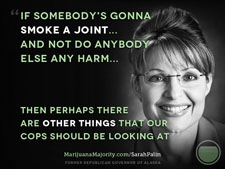For those arguing for drug reform for decades, Oregon’s successful ballot measures 109 and 110 are hugely hopeful signs in sensible drug policy.
They may, however, prove better signs of a general trend beyond just drug policy.*
The best reason to oppose drug prohibitions is not to maximize our freedom but to inculcate a culture of responsibility while getting government out of the business of interfering in our lives.
And while Measure 109 is about psilocybin mushrooms, what it actually does is establish a government board to set up a regulatory system to distribute and license possession of consumable psilocybins.
May work out great. It may also turn out very badly.
As one would expect from this sort of government program.
Measure 110, which also passed on Tuesday, made “personal non-commercial possession of a controlled substance no more than a Class E violation (max fine of $100 fine) and establishing a drug addiction treatment and recovery program funded in part by the state’s marijuana tax revenue and state prison savings.”
Both are very “liberal” programs, based on notions of state aid and government program-building rather than traditional, more “conservative” prohibit-and-punish models. Both the old and the new approaches skirt around personal responsibility.
What the measures show, though, is that Oregonians are effectively defying federal laws on “controlled substances.” The new approach is very old: federalist, more about local rather than national control.
As such, it shows the current tide turning away from making a federal case out of everything.
The next President of These United States, and both houses of Congress, should take notice.
On drugs, they are not only not needed. They are not wanted.
Apply that to health care in general, I say.
This is Common Sense. I’m Paul Jacob.
* These Oregon measures were the only two “hard drug” ballot measures this year. There were quite a few marijuana ballot measures around the country. All passed.
—
See all recent commentary
(simplified and organized)





